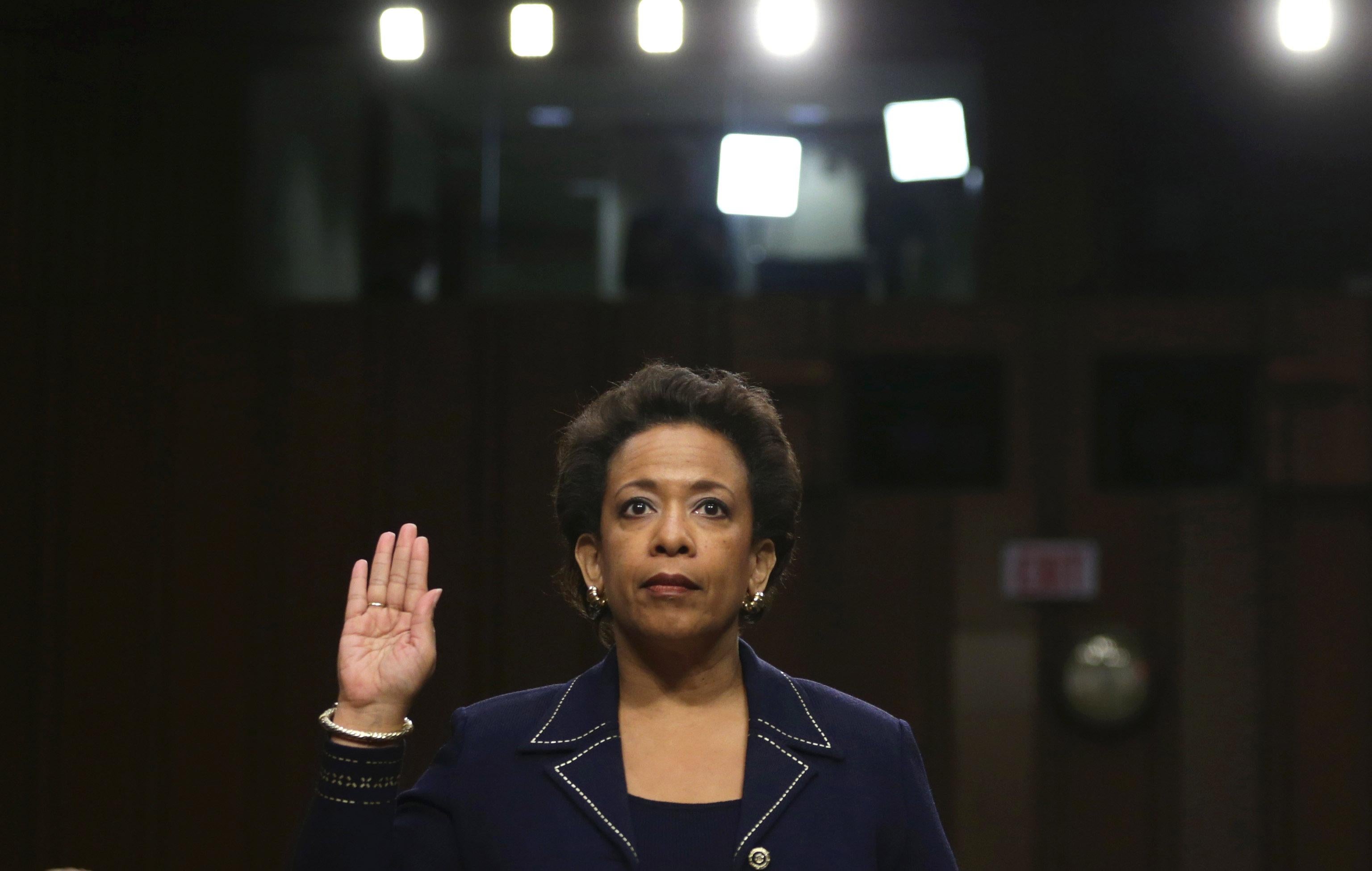The Senate left town yet again on Thursday without holding a vote on Loretta Lynch’s nomination to be U.S. attorney general. This was hardly a surprise given that it’s been more than five months since President Obama formally tapped her to replace Eric Holder, but the promising news is that there are signs that an end to Lynch’s historic wait may finally be on the horizon.
Senate Democrats and Republicans appear to be inching closer to a deal that would end a standoff over abortion funding in an unrelated human trafficking bill—which Majority Leader Mitch McConnell has for unexplained reasons made a prerequisite to a Lynch vote. McConnell said Thursday that it is his “hope” that the Senate will finish work on that legislation next week, allowing the chamber to pivot to Lynch. Minority Leader Harry Reid, while less effusively optimistic, agreed that “progress has been made.” While McConnell has made similar comments in the past, lawmakers tasked with negotiating the compromise are also sounding more optimistic.
Lynch supporters—some of whom have launched a hunger strike on her behalf—shouldn’t start celebrating just yet. She was on pace for a vote earlier this year before the human-trafficking bill indefinitely delayed her nomination. The legislation itself only became disputed after Democrats discovered the controversial abortion provision late in the process. Even if negotiators are able to hammer out a deal next week, it’s a safe bet that lawmakers will want to take the time to actually read the bill this time to make sure there are no more surprises.
A human-trafficking deal would provide the most obvious path to a vote on Lynch’s confirmation, but it’s not the only one. Harry Reid suggested on Thursday that he was prepared to break Senate tradition if necessary to get the job done. “We’ve put up with this far too long, and we’re going to need to have a vote on her very soon that’s created by Mitch McConnell or I’ll create one,” Reid told MSNBC’s Rachel Maddow. “I know parliamentary procedure around here, and we’re going to put up with this for a little while longer but not much.”
Reid was nodding to Senate rules, under which any senator could in theory move to bring Lynch’s nomination up for a vote as long as he or she had the backing of the majority of the chamber. Senate tradition, however, reserves the power to schedule a vote for the majority leader—meaning that Reid would infuriate Republicans, and perhaps some of his fellow Democrats, with such a breach of protocol. (Remember, we’re talking about a place where a change to the filibuster was referred to as the “nuclear option” and where senators are still discouraged from addressing one another by name while on the floor.)
Even if Reid follows through on his threat, he’d still need to find at least five Republicans to break ranks and give him the majority he needs to force a vote. The most obvious candidates would be the five GOP senators who have already publicly backed Lynch—Orrin Hatch, Jeff Flake, Lindsey Graham, Susan Collins, and Mark Kirk—although there are no guarantees they’d be willing to break so openly with their party leadership and Senate protocol in order to move a vote ahead.
Regardless, Reid simply trying to force a vote would ratchet up pressure on Republicans. Currently, they’re passively blocking Lynch’s confirmation by simply not bringing it up for a vote, but Reid’s ploy would force them to actively do so by voting against allowing a vote. Republicans could very well vote against Reid’s move but it would likely come with a political price, particularly as presidential hopeful Jeb Bush and other high-profile Republicans outside of the Senate are calling for McConnell to back down and allow Lynch to be confirmed.
None of that is to suggest that Lynch’s confirmation is imminent. But for the first time in a month, the question appears to be shifting back to when Lynch will get a vote, from if she ever will.
